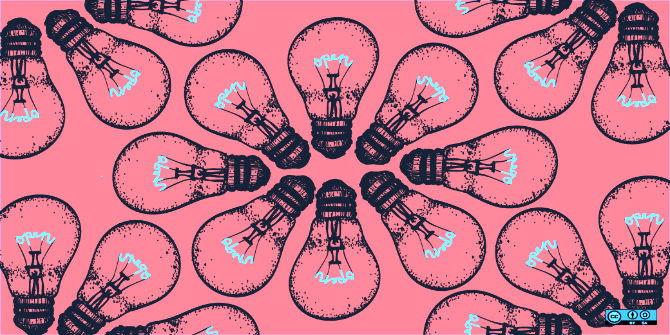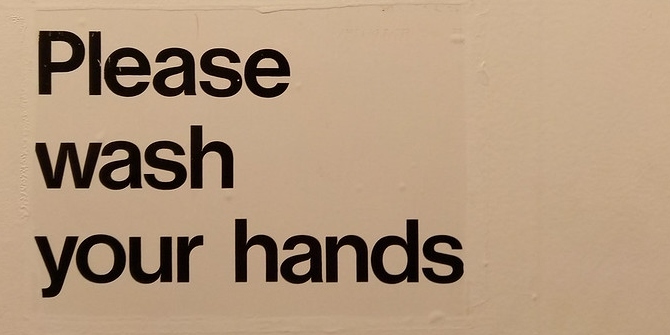In Open Data and the Knowledge Society, authors Bridgette Wessels, Kush Wadhwa, Rachel L. Finn and Thordis Sveinsdottir place the management of open data ecosystems at the heart of the transformation into a ‘knowledge society’, presenting five case studies through which to consider various ways of dealing with different types of data. Miranda Nell welcomes this book for showing how open data is something that we must actively and critically work to organise, integrate and manage.
Open Data and the Knowledge Society. Bridgette Wessels, Kush Wadhwa, Rachel L. Finn and Thordis Sveinsdottir. Amsterdam University Press. 2017.
The question of ‘open data’ may seem extraneous to philosophical discussions, but it does have bearing on the future of our political and ethical landscapes, and if epistemologists don’t engage in the conversations, the meaning of knowledge will be shifted without them. When this book speaks of knowledge, it refers to processes of production and consumption as opposed to discovery or revelation. This is significant because ‘the growth of theoretical and codified knowledge, in all its varieties, is central to the post-industrial society’ (34) – we live in an age of recorded facts instead of one shaped by direct experience.
Open Data and the Knowledge Society is itself a fairly straightforward book, but it sheds light on fundamental issues. Its goal is the preparation of the modern world for the next level of technological living: graduating from an ‘information society’ to a ‘knowledge society’, which means, loosely, a society in which data – new, digital, scientific – is equally available in all sectors.
This ‘knowledge society’, in which the creation of knowledge (here defined as cumulative data) is central to the maintenance of society, is explicitly recognised to suggest a ‘move to relativism’ (38). One might argue we have undertaken that shift already, but how knowledge is understood here is important: ‘broadly speaking, a knowledge society is one that generates, processes, shares and makes knowledge that may be used to improve the human condition’ (25).
According to these authors, what we now primarily think about is data – the records we and other people keep about our world. The key to a productive society is finding a way to do this transparently so that we can check one another’s data against our own. Living in a world overwhelmed by ‘fake news’, it can seem rather burdensome to have no hierarchy of knowledge producers. In Spiderman’s truly Kantian wisdom, with great freedom comes great responsibility: if we are ‘allowed’ to investigate the source of each claim, we become expected to do so, until every individual must behave as an editor to their own news, a full-time job that not every reader can manage.
Open Data and the Knowledge Society is the result of a research project, RECODE (policy RECommendations for Open access to research Data in Europe), which followed five case studies based in archaeology, health and clinical research, bioengineering, environmental science and particle physics in order to see how varying data might be dealt with differently. The case studies are discussed in four of the ten chapters of the book, and are looked at within broader frameworks covering such issues as mobilisation and ethical concerns. As a result, the book is not heavily focused on data itself but rather on overarching and comparative views of its management.
 Image Credit: (opensource.com CC BY SA 2.0)
Image Credit: (opensource.com CC BY SA 2.0)
Other chapters provide broad introductions to the material at a level comfortable for the unfamiliar, partly out of necessity as groundwork is still being laid and terms still being defined within the field. Three primary categories of data are determined: Research Data, which includes academic as well as GLAM (galleries, libraries, archives and museums) data; Government Data, which includes much statistical, environmental and census information; and Big Data, which is gathered by private enterprises. Within these larger boundaries are endless possible nuances, but the overarching distinctions are useful in keeping track of potential motivational factors (i.e. by considering if the data is collected by an NGO, state or for-profit organisation).
Data or knowledge is described as existing as environments, ecosystems or economies rather than static piles of information, and human beings are considered to live within data-worlds (or perhaps more importantly, those who are not are hindered or delayed rather than being legitimately indifferent or ‘opting out’). One could say that we have always lived in data-worlds insofar as we have always been communicators, but the shift concerns how much we rely on the information gathered by others to determine our own journeys today. Currently, exposure to secondary information outweighs new sensory experiences on a constant basis and the initial source of reports is often many layers away. It is this that often stimulates the Open Data movement, for it is imagined that if the path to sources were clear, we could make more informed decisions, leading to better societies.
Socrates was sceptical of writing thoughts down, and the printing press had its adversaries as well, but time moves forward. It is futile to imagine our relationship to knowledge can be static, so the point must be how to navigate a world so saturated with data. There is no ideal solution, but someone is left with a task: ‘to help researchers and the public find their way through the mass of scientific information and research data to identify the material that best fits their purpose’ (139). Here, Open Data and the Knowledge Society locates several problems including ‘interoperability issues’ due to ‘significant heterogeneity’ (138) at technological and legal levels, as well as financial issues, which may find some alleviation in recognising that ‘sharing does not necessarily mean unrestricted and free access’ (133). There are also complications over time, both in terms of ‘broad consent’, i.e. using data continuously or in new contexts, and in terms of practical reusability, when technologies, protections and data storage methods change.
Much of the book is like this – laying out all the complex ways in which it is difficult to maintain access to large amounts of information, and reminding the reader of how information can be hard to handle and particularly hard to integrate. Yet, information is believed to be ‘the new oil’ (161, referencing Kroes, 2013) for the commercial sector or, more optimistically, ‘as akin to […] a renewable energy source that will continue to provide cascading benefits’ (166). The authors hope, for instance, that large corporate data collectors can be responsible members of a knowledge society ‘through the transparent and trustworthy use of data’ (173) in economic ventures.
The primary conclusion of the book is that this is the beginning of a longer investigation, because ‘the idea of a knowledge society is still under-theorised and under-researched’ (175). Questions about ‘how knowledge is understood in contemporary society, how can it be shared and what values should underpin a knowledge society’ are not often enough recognised as concerns needing attention. Open Data and the Knowledge Society makes a solid case that we should consider these questions more thoroughly, showing how the modern, and perhaps more mundane, version of knowledge that we are entrenched in – knowledge not as lived experience but as shared technology, i.e. codified knowledge or data – will shape our future for better or worse. Thus, it is our duty to take part this time around, as the land is divided and the constitution is written, in the structure of the world we will bequeath. Open Data is not something that can simply be preferred; it must be organised, motivated, integrated and managed in a variety of ways if it is to happen.
This review originally appeared at the LSE Review of Books.
Please read our comments policy before commenting.
Note: This article gives the views of the authors, and not the position of USAPP– American Politics and Policy, nor of the London School of Economics.
Shortened URL for this post: http://bit.ly/2BbQuB0
——————————————–
About the reviewer
Miranda Nell
Miranda Nell received her PhD from the New School for Social Research in 2012. Her interests include aesthetic experience, the exploration of variety and flexibility in knowledge and the importance of non-cognitive modes of expression. Read more reviews by Miranda Nell.


 Find this book:
Find this book: 



